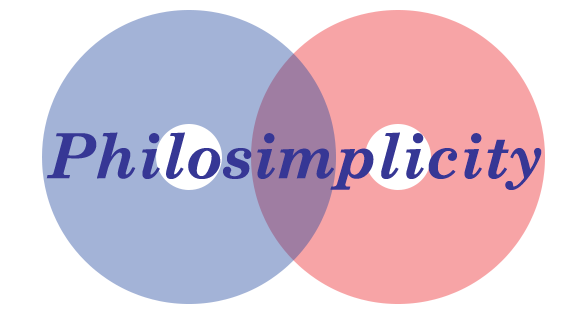Philosophy isn’t just an arcane subject; sometimes aspects of the modern world lend themselves to being seen through a philosophical lens. In this post, I’ll be sharing some news articles published in the past week, giving an overview of their contents, and explaining their philosophical relevance.
The Problem of Living in the Present: I suppose starting with an article written by a philosopher is cheating, but I actually found this to be a relevant and timely read. In this post, philosophy professor Kieran Setiya helps us distinguish between activities which actually allow us to enjoy the present and those which necessarily demand that our focus lie outside of the present. According to him, a good life maintains a balance between these types of activities. Perhaps nothing Setiya says here is brand new, but I enjoyed the references to Aristotle and teleological, or goal-oriented, action.
Hurricane Price Gouging Is Despicable, Right? Not to Some Economists: This article discusses the debate around the act of price gouging during emergencies, which is of particular interest to me as someone who studied political economy. While the issue can appear to be cut-and-dry, there are likely many reasons why the debate persists.
First off, while it is true that economic theory favors gouging proponents’ arguments, there are real-world considerations that can arguably alter the benefits of gouging in some situations. Price rationing works exactly as proponents suggest, but only when key variables are in play. For example, for the most optimal outcomes, producers would need to have a sufficient amount of information about the situation in order to price their products appropriately. However, in the short run during a tremulous period, an economic argument can be made that price gouging may not play out exactly the way it’s intended because producers won’t have that information and/or might lack the time needed to make adjustments based on that information. This doesn’t mean that price gouging doesn’t work, but it means that the circumstances, the timing, and the manner in which price gouging occurs are all important.
Second, with regards to emergency situations, because we are dealing with human lives there is a secondary concern that many have which isn’t reflected in economic thinking. Uber learned this when its surge pricing kicked in during the 2014 Sidney Hostage Crisis — even some people who understood the economic reasoning behind price surging during that time found it distasteful. Interestingly, though not surprisingly, this moral aspect can have economic consequences for companies in the long run. Customers don’t easily forgive price gougers and the positive PR surrounding more “moral” responses to disasters can provide an economic incentive for companies to either help out people in distress or at the very least to avoid gouging.
As the debate continues, the arguments of pro-gouging economists shouldn’t be dismissed outright as there likely are some tradeoffs that have to be considered when supplies are scarce, and economics is a great tool for showing us the tradeoffs we might have to make. At the same time, though, economics by itself cannot tell us which decisions are intrinsically moral or preferable outside of the paradigm of utility and efficiency maximization.
Yes, Some Questions Are Better Than Others: Are some questions just plain bad? Psychology professor Tania Lombrozo notes that some questions are definitely better than others, either because they help us select for the type of information we want or because they encourage discovery. Questions of the latter type seem to be discouraged outside of childhood exploration and philosophy. Interestingly, I noted a parallel between the first article and this one. Both Setiya and Lombrozo mention goal-oriented thinking and that to truly enjoy life we shouldn’t always be in that mindset.
Lotfi Zadeh, Father of Mathematical ‘Fuzzy Logic,’ Dies at 96: Lotfi Zadeh, UC Berkeley professor emeritus, computer scientist, and electrical engineer died in his home on Wednesday, Sept. 6 at the age of 96. The importance of Zadeh’s work, specifically his concept of fuzzy logic, cannot be understated. Fuzzy logic is a modification to set theory which allows for sets to reflect “fuzzy” relationships or relationships expressed in degrees rather than in absolutes. In traditional sets, objects either are or aren’t part of a set. Fuzzy sets can allow for us to use logic and math to reference things as we would in everyday language — instead of choosing between describing something as sweet or not sweet, we can logically express what “semisweet” looks like. Zadeh’s fuzzy logic is used in systems where these types of imprecise relationships exist (automated cooking devices, temperature control systems, and other technologies), but his hope was that fuzzy logic could be useful for the development of AI and natural language expression.
Why Cassini Is Ending Its Life with a Kamikaze Plunge: NASA’s Cassini probe was slated for destruction last week and went out in a blaze of glory. This part of the story, while interesting, isn’t the part with philosophical implications, however. Rather, the how and why regarding NASA’s decision to send Cassini spiraling into Saturn are what are most interesting. NASA takes seriously the threat of microbial contamination, either through the accidental transmission of earth microbes to other worlds or the transmission of extraterrestrial microbes to earth. The logic of how NASA comes to its decisions are reflected in its Planetary Protection Policy, a policy which NASA has asked other countries to adopt or emulate in their space exploration programs. This policy brings up interesting implications about what obligations we have to ourselves as a species, as well as to existing life on other worlds.
Though Cassini is long gone, here’s some music in tribute to its last moments. The music is best paired with images from Cassini’s mission.

